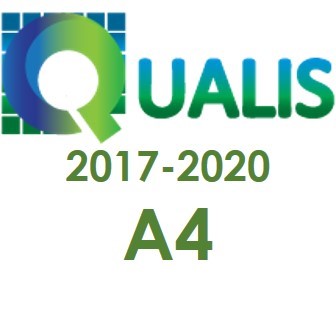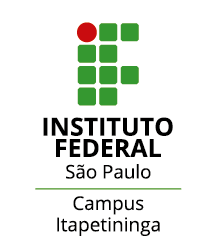La evaluación como medio para transformar la aprendizaje de los estudiantes futuros profesores
contribuciones de una intervención pedagógica
Palabras clave:
Prácticas de evaluación. Concepciones de evaluación. Feedback. Profesores universitarios. Estudiantes futuros profesores.Resumen
Este trabajo analiza las concepciones y prácticas de evaluación de una profesora universitaria dentro de una lógica de desarrollo profesional, complementadas con la perspectiva de sus alumnos (n=25). Los datos se recogieron en un curso del Máster de Formación del Profesorado de una universidad pública portuguesa. Se implementó un Proyecto de Intervención y Formación, combinando métodos cualitativos y cuantitativos. Este estudio incluyó el análisis de las estrategias de interacción, el potencial y las limitaciones de los métodos de evaluación y sus implicaciones para la enseñanza, el aprendizaje y los resultados académicos. La función formativa de la evaluación, basada en la regulación, el seguimiento, la orientación, la mejora y el apoyo al aprendizaje de los estudiantes y la implicación de éstos en las prácticas de evaluación emergen en los resultados de este estudio.
Descargas
Citas
BARDIN, L. Análise de conteúdo. Lisboa: Edições 70, 2009.
VAN DEN BERGH, L.; ROS, A.; BEIJAARD, D.. Teacher learning in the context of a continuing professional development programme: a case study, Teaching and Teacher Education, 47, 142-150, 2015. https://doi.org/10.1016/j.tate.2015.01.002
BLACK, P.; WILIAM, D. Classroom assessment and pedagogy. Assessment in Education: Principles, Policy & Practice, 25, 6, 551-575, 2018. https://doi.org/10.1080/0969594X.2018.1441807
BLACK, P.; WILIAM, D. Assessment and classroom learning. Assessment in Education: Principles, Policy & Practice, 5, 1, p. 7-74, 1998. https://doi.org/10.1080/0969595980050102
BONNIOL, J.; VIAL, M. Les modèles de l’évaluation. Paris: De Boeck & Larcier S.A., 1997.
BORRALHO, A.; FIALHO, I.; CID, M. Aprendizagem no ensino superior: Relações com a prática docente. in: LEITE, C.; ZABALZA, M. (org.) Ensino Superior: Inovação e qualidade na docência. Porto: CIIE – Centro de Investigação e Intervenção Educativas, 2012, p. 984-996.
BOUD, D. The role of self assessment in student grading. Assessment and Evaluation in Higher Education, 14, 1, 20-30, 1989. https://doi.org/10.1080/0260293890140103
BROWN, G.T.L. Teachers’ conceptions of assessment. Unpublished doctoral dissertation. Auckland, NZ: University of Auckland, 2002. Retrieved from http://hdl.handle.net/2292/63
BROWN, S.; GLASNER, A. Assessment maters in higher education: choosing and using diverse approaches. Buckingham: Open University, 1999.
BROWN, S. Assessment for Learning. Learning and Teaching in Higher Education, Issue 1, 2004-05, 81¬- 89, 2005. ISSN 1742¬240X.
CARLESS, D.. Trust, distrust and their impact on assessment reform. Assessment & Evaluation in Higher Education, vol. 34, núm. 1, p. 79-89, 2009. https://doi.org/10.1080/02602930801895786
CARLESS, David. Excellence in university assessment: learning from award-winning practice. New York: Routledge, 2015.
CARLESS, D.; SALTER, D.; YANG, M.; LAM, J.. Developing Sustainable Feedback Practices. Studies in Higher Education, 36(4), p. 395–407, 2011. https://doi.org/10.1080/03075071003642449
CHO, J. Y.; LEE, E. Reducing Confusion about Grounded Theory and Qualitative Content Analysis: Similarities and Differences. The Qualitative Report 2014, Vol. 19, Article 64, p.1-20, 2014.
COHEN, L.; MANION, L.; MORRISON, K. Research Methods in Education. 6th Ed. London & New York: Routledge, 2007.
COUTINHO, C.P. Metodologias de Investigação em Ciências Sociais e Humanas: Teoria e Prática. Coimbra: Edições Almedina, S.A. 2014.
EARL, L. M. Assessment as Learning: Using Classroom Assessment to Maximize Student Learning. Thousand Oaks: Corwin Press Inc, 2003.
EARL, L. M. Assessment for learning; Assessment as learning: Changing practices means changing beliefs. In: HONG KONG EDUCATION BUREAU (Ed.), Assessment and learning (Issue 2), 2013, p. 1–5. Hong Kong: The Hong Kong Government Printer.~
EARL, L.; KATZ, S. Rethinking classroom assessment with purpose in mind. Winnipeg. Manitoba: The Crown in Right of Manitoba, 2006. Retrieved from: https://www.edu.gov.mb.ca/k12/assess/wncp/full_doc.pdf
ESTEVES, M. Análise de Conteúdo. in: LIMA, L.; PACHECO, J.A. (orgs.) Fazer Investigação. Contributos para a elaboração de dissertação e teses. Porto: Porto Editora, 2006, p.105-126.
ESTEVES, M. Para a excelência pedagógica do ensino superior. Sísifo, Revista de Ciências da Educação, 07, p. 101-110, 2008. http://sisifo.ie.ulisboa.pt/index.php/sisifo/article/viewFile/122/202
EUROPEAN COMMISSION. Report to the European Commission on improving the quality of teaching and learning in Europe's higher education institutions. Luxembourg: EU Publications, 2013. ISBN: 978-92-79-30360-9. DOI: 10.2766/42468
EZZY, D. Qualitative Analysis: Practice and Innovation. Australia: Allen & Unwin, 2002.
FERNANDES, D. Avaliação das Aprendizagens: Uma Agenda Muitos Desafios. Lisboa: Texto Editora, 2004.
FERNANDES, S.; FLORES, M. A.; LIMA, R. M. Students’ views of assessment in project-led engineering education: findings from a case study in Portugal. Assessment & Evaluation in Higher Education, 37, 2, 163-178, 2012. http://dx.doi.org/10.1080/02602938.2010.515015
FERNANDES, E. L. Conceptions and practices of assessment in higher education: a study of university teachers. Tese de Doutoramento em Ciências da Educação (especialidade em Desenvolvimento Curricular). 2020. http://hdl.handle.net/1822/76411
FLORES, M.A.; PEREIRA, D. Capítulo I. Revisão da Literatura. In FLORES, M.A. (coord.) Avaliação no Ensino Superior: Conceções e Práticas, 2012, p. 23-48. Santo Tirso: De Facto Editores.
GOLEMAN, D. Inteligência emocional. Lisboa : Temas e Debates, 1999.
HATTIE, J.; TIMPERLEY, H. The Power of Feedback. Review of Educational Research, Volume 77, issue 1, March 2007, 81-112, 2007. https://doi.org/10.3102/003465430298487.
KYARUZI, F.; STRIJBOS, J.W.; UFER, S.; BROWN, G.T.L. Teacher AfL perceptions and feedback practices in mathematics education among secondary schools in Tanzania. Studies in Educational Evaluation, 59, 1–9, 2018. https://doi.org/10.1016/j.stueduc.2018.01.004
LIGHT, G.; COX, R. Learning & Teaching in Higher Education. The Reflective professional. London: Sage Publications, 2003.
MCDOWELL, L.; WAKELIN, D.; MONTGOMERY, C.; KING, S. Does assessment for learning make a difference? The development of a questionnaire to explore the student response. Assessment & Evaluation in Higher Education, 36(7), 749-765, 2011. https://doi.org/10.1080/02602938.2010.488792
MILES, M. B.; HUBERMAN, A. M. Qualitative data analysis: An expanded source book (2nd ed.). Newbury Park, CA: Sage, 1994.
MORIN, E. Os sete saberes necessários à educação do futuro. São Paulo: Cortez Editora, 2003.
PEREIRA. Í.S.P.; FERNANDES, E.L.; BRAGA, A.C; FLORES, M.A. (2023). Initial teacher education after the Bologna process. Possibilities and challenges for a renewed scholarship of teaching and learning. European Journal of Teacher Education, 46(1), 6-34, 2023. https://doi.org/10.1080/02619768.2020.1867977
POPHAM, J. W. Transformative assessment. USA: ASCD - Association for Supervision and Curriculum Development, 2008.
PRICE, M.; HANDLEY, K.; MILLAR, J. Feedback: focusing attention on engagement. Studies in Higher Education, 36, 8, 879-896, 2011. https://doi.org/10.1080/03075079.2010.483513
ROLDÃO, M.C. Estratégias de ensino. O saber e o agir do professor. V. N. Gaia: Fundação Manuel Leão, 2009.
RUST, C. Towards a scholarship of assessment. Assessment & Evaluation in Higher Education, 32, 2, 229–237, 2007. https://doi.org/10.1080/02602930600805192
SAMBELL, K. (2011). Rethinking feedback in Higher Education: an assessment for learning perspective. University of Bristol: ESCalate, HEA Subject Centre for Education, 2011. Retrieved from http://escalate.ac.uk/downloads/8410.pdf, 20/08/2020.
TANG, S.Y.F; CHOW, A.W.K. Communicating feedback in teaching practice supervision in a learning-oriented field experience assessment framework. Teaching and Teacher Education, 23, 7, 1066-1085, 2007. https://doi.org/10.1016/j.tate.2006.07.013
TRINDADE, R.; COSME, A. Educar e aprender na escola: Questões, desafios e respostas pedagógicas. V. N. Gaia: Fundação Manuel Leitão, 2010.
WEBBER, K. L. The Use of Learner-Centered Assessment in US Colleges and Universities. Research in Higher Education, 53, 2, 201–228, 2012. https://doi.org/10.1007/s11162-011-9245-0
Descargas
Publicado
Cómo citar
Número
Sección
Licencia
Derechos de autor 2024 Revista Internacional de Formação de Professores

Esta obra está bajo una licencia internacional Creative Commons Atribución-NoComercial-CompartirIgual 4.0.



 Este trabalho está licenciado sob uma licença
Este trabalho está licenciado sob uma licença 